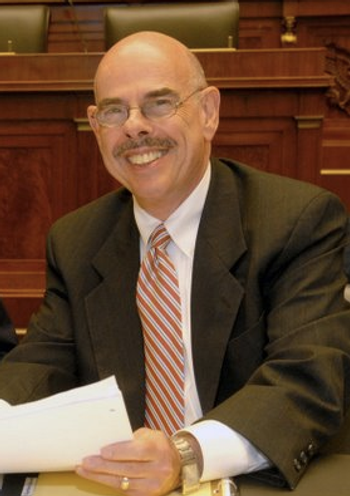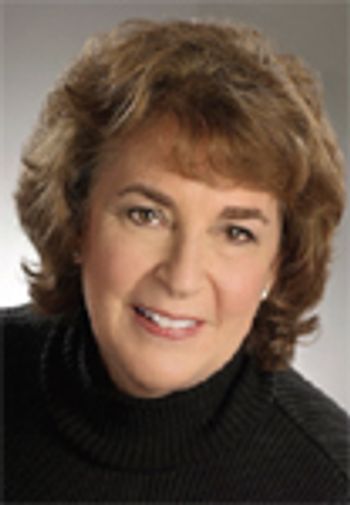
The Washington health policy world is headed for a major shake-up next year, as more long-time leading legislators opt for retirement.

Jill Wechsler is Pharmaceutical Technology's Washington Editor, jillwechsler7@gmail.com.

The Washington health policy world is headed for a major shake-up next year, as more long-time leading legislators opt for retirement.

FDA urges manufacturers to examine how shape, size, and color may affect patient safety and enhance treatment adherence.

India has a name when it comes to generic drug development. According to a recent research on patent applications carried out by Withers & Rogers, innovation by Indian pharmaceutical companies has increased over the past few years; however, the quality did not match the standard seen in Europe.

If FDA is going to establish standards for assessing the quality of manufacturing sites and products, it should seek data on a few well-defined measures that reflect longer-term results and trends, rather than “snapshots of current numbers.

Moving fast to bolster its authority over compounding pharmacies that operate as manufacturers of prescription drugs, FDA is urging “outsourcers” to register, seeking state support, and moving to issue more rules and guidance.

As expected, FDA approved only 27 new molecular entities (NMEs) in 2013. There was no late-December surge in approvals to bring the tally closer to the near record of 39 innovative new drugs approved in 2012.

Regulators work with manufacturers to improve systems for measuring product performance and manufacturing reliability.

FDA details efforts to evaluate potential risks from use of nanomaterials in drug products and discuss analytical considerations, impact on stability, safety, and toxicology effects.

OGD is under pressure to improve review operations.

Legislators agree on a limited bill affirming FDA authority over compounders while setting up a process for national drug tracking.

New policies and products seek to maintain access to pain medicines while curbing rampant abuse.

FDA is moving fast to implement the drug compounding provisions of the new Drug Quality and Security Act (DQSA), issuing new guidance to spur registration by outsourcing facilities just days after President Obama signed the new bill into law.

The bacterial meningitis outbreak at Princeton University in recent weeks has raised questions about why there is no vaccine in the United States to prevent this deadly disease, when such a therapy is approved in Europe and Australia.

Congress gave final approval this week to new legislation to strengthen FDA authority to oversee large pharmacy compounders of sterile injectables and to require more comprehensive tracking of prescription drugs moving through the global supply chain.

FDA is proposing to revise its rules to permit generic-drug manufacturers to initiate safety-labeling changes instead of waiting until the brand company takes action.

Generic Drug Super Office Takes Shape

Breakthrough Therapies Raise Manufacturing Issues

FDA Promotes Personalized Medicine

FDA Moves to Curb Drug Shortages

Health plans that limit drug converge may encourage consumers to obtain medicines illegally, according to pharmacy experts.

Establishing a new Office of Product Quality in the Center for Drug Evaluation and Research (CDER) is a top priority for CDER director Janet Woodcock, and she plans to take charge of the operation personally when it is established next year.

Legislators agree on a limited bill affirming FDA authority over compounders while setting up a process for national drug tracking.

Budget issues and changing global markets are prompting FDA to revise its growing network of overseas offices.

Manufacturing standards are considered key to preventing drug recalls and shortages.

Officials from FDA and the National Institutes of Health (NIH) were scheduled to explain developments in clinical trial registration and transparency at the Drug Information Association’s conference on Clinical Trial Disclosure in Bethesda, Md. this week.

Public outrage over deaths from contaminated injectibles produced by large compounding pharmacies, along with rising concerns about counterfeit and unauthorized drugs entering the U.S. market, managed to lift the stalemate on Capitol Hill long enough to generate agreement on reform legislation.

Healthcare spending will rise modestly in the US over the next decade, as economic growth picks up, health reform provides expanded coverage, and the population continues to age, according to an annual analysis from the Centers for Medicare and Medicaid Services (CMS).

FDA commissioner Margaret Hamburg has formed a top-level working group to propose strategies for enhancing agency functions and processes, starting with the relationship between FDA Centers and its field force.

New FDA supply chain policies aim to strengthen inspection and oversight processes.

We’re already embroiled in the annual speculation game about whether FDA approvals this year will keep pace with last year’s near-record of 39 new molecular entities (NMEs) brought to market.